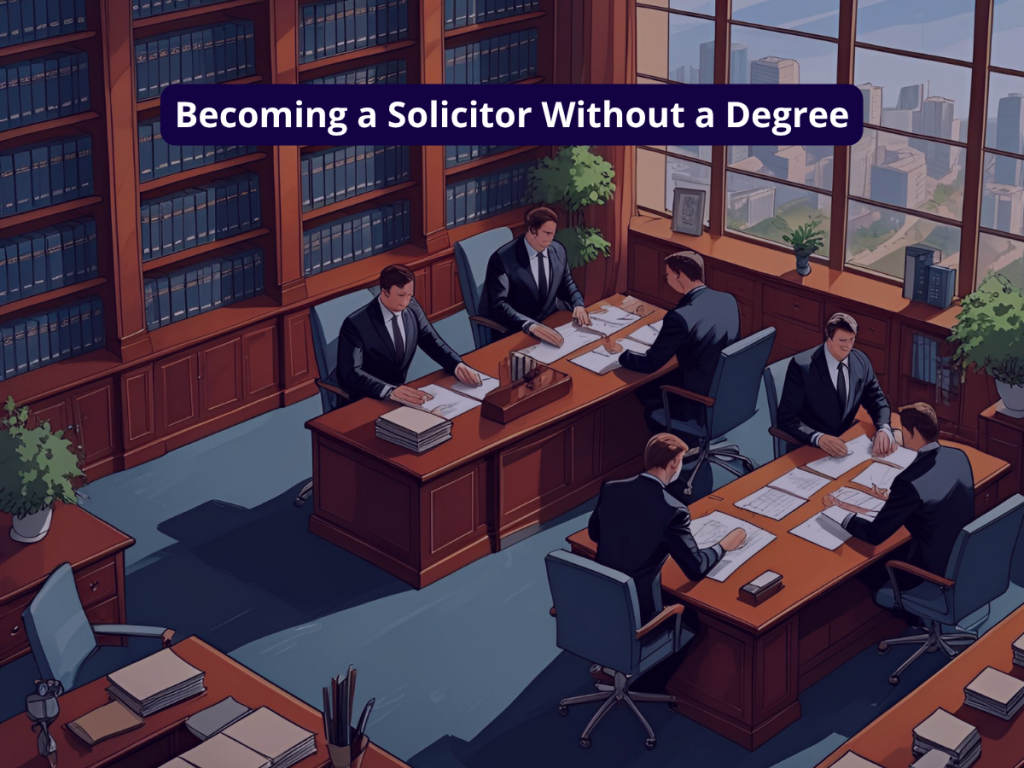
Law Apprenticeships UK: Your Guide to Legal Training
Law Apprenticeships UK: Your Guide to Training with Datalaw Embarking on a legal career no longer requires following the traditional university route. Law apprenticeships UK

How to become a solicitor?
You will also need to complete your Solicitor Qualifying Exams (SQE) and two years of Qualifying Work Experience. The Solicitors Qualifying Examination (SQE) is the primary entry point into the legal profession. It was introduced in 2021 to take the place of the Law Practice Course (LPC). The SQE is the main route for both law graduates and non-law graduates wishing to be admitted as solicitors or lawyers in other jurisdictions seeking to qualify as UK solicitors. The Solicitors Regulation Authority (SRA) is in charge of administering it .The SQE 1 consists of two tests that evaluate functional legal knowledge, FLK1 and FLK2. Each evaluation consists of 180 questions and is administered on a different day, with each day being further divided into two sessions. You will be required to complete 90 questions in each session, which lasts roughly two and a half hours. The two sessions are separated by an hour break. The SQE 2 will require a written assessment and an oral skills evaluation. The vast majority of people benefit from the SQE1 Prep Course and SQE2 Prep Course.
Is a legal degree mandatory to take the SQE?
Most people wonder if they can become a solicitor without a law degree. This is correct, under the new SQE system, having a law degree is no longer a requirement for becoming a solicitor. However, a candidate will require an in-depth understanding of English and Welsh law in order to pass the SQE examinations; this is where a Level 7 Solicitor Apprenticeship can come in. This will prepare you with the necessary skills to become a qualified solicitor and prepare you for your SQE 1 & 2 exams and SQE preparation courses.
Prospective Solicitors are the target audience for the SQE. If you are planning on becoming a solicitor, you will need to complete two years of qualifying work experience after passing SQE1 and SQE2.
Is there a way to go into the legal field without going to university?
Legal apprenticeships are a great alternative route to university. Apprenticeship routes today have all the training you will need to become legally qualified. Most people who are beginning their legal career benefit from starting with a Level 3 Paralegal Apprenticeship where you will be taught the skills to become a qualified paralegal and then progressing onto a Level 7 Solicitor Apprenticeship where you will become a qualified solicitor.
View our Level 7 Solicitor Apprenticeship page to learn more.
Keywords: Solicitor Qualifying Exams, Level 7 Solicitor Apprenticeship, SQE1, SQE2, Legal Apprenticeships, Qualified Paralegal, Qualified Solicitor, Level 3 Paralegal Apprenticeship

Law Apprenticeships UK: Your Guide to Training with Datalaw Embarking on a legal career no longer requires following the traditional university route. Law apprenticeships UK

Paralegal Apprenticeships: Kickstart Your Legal Career A career in law does not have to start with university. Paralegal apprenticeships provide a structured, hands-on route into

Legal Apprenticeships UK: A Pathway to Success The legal profession is evolving, and Legal Apprenticeships UK offer an alternative route to qualification that combines practical

Your Ultimate Guide to An Apprenticeship in Law UK Embarking on an apprenticeship in law UK is an excellent way to gain practical legal experience

SQE Apprenticeships: Secure Funding For Your Legal Career For those already working in law firms, progressing to full solicitor qualification can be an expensive and

SQE Funding: Financial Support in Solicitor Apprenticeships The Evolving Landscape of Legal Education The introduction of the Solicitors Qualifying Examination (SQE) has transformed the pathway